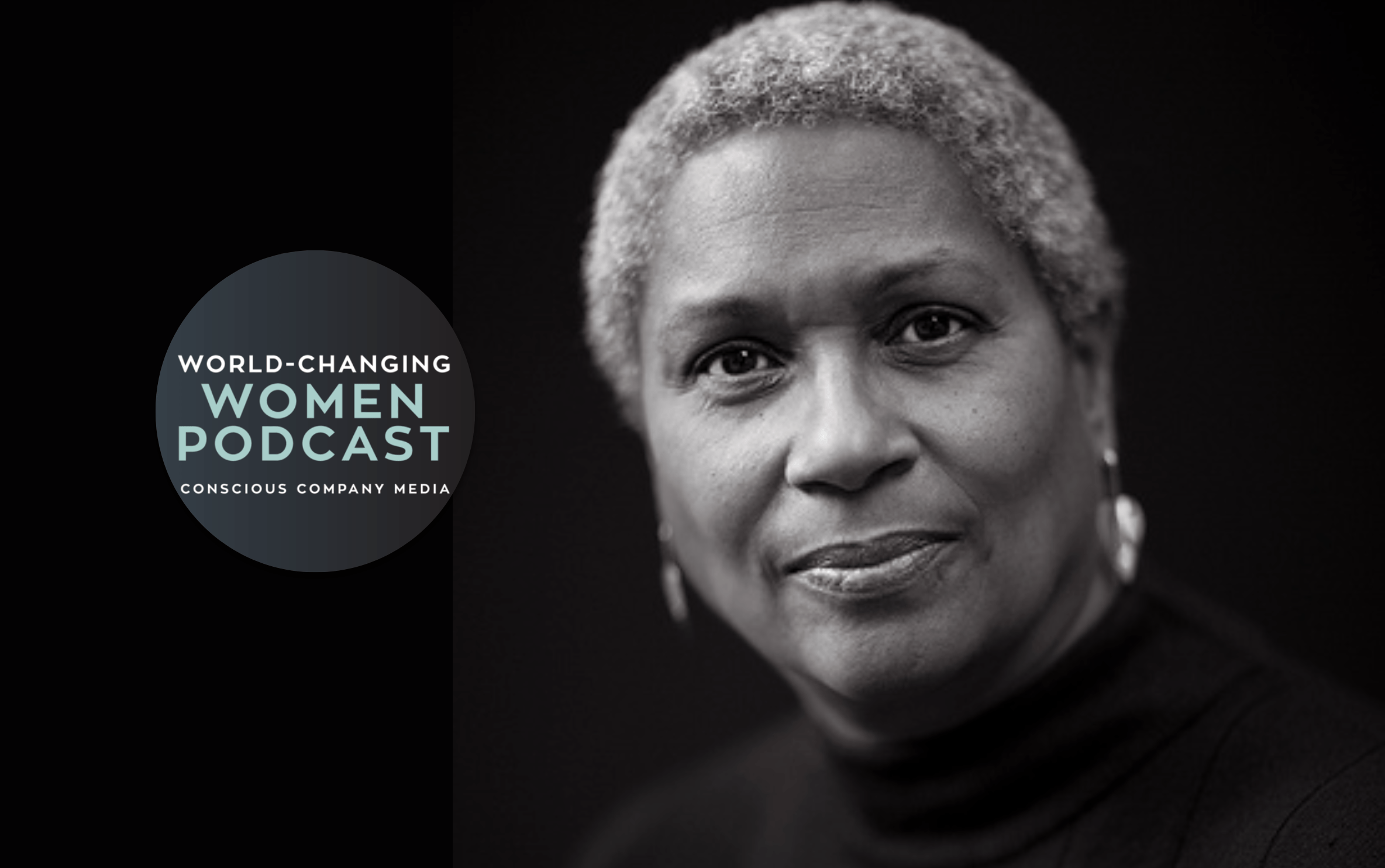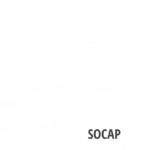The Impact Economy Is Leading the Transformation
The white supremacist patriarchy has shaped society’s major systems, including our governmental and economic systems. Dismantling this non-inclusive and inequitable system is foundational to ensuring the economy works for everyone. To create new structures for society, we need to envision how society could operate without traditional hierarchies and power disparities. Leaders in the impact economy are already doing the work to facilitate this transformation.
“So we’ve got white supremacist patriarchy, and it’s taking its last dying breath,” says Akaya Windwood. “We’re seeing it everywhere. It shows up in income inequalities and racism and genocide and ecocide and many other ways. There are many people who are working to resist it, to dismantle it, to hospice, to do the work of helping people who have been deeply impacted by this white male supremacist system, to heal, and I want to honor folks who do that work.”
Akaya Windwood is a pioneer. She led the Rockwood Leadership Institute for over a decade and is now a Partner at WiseBridge — a consultancy committed to creating a world where people and planet thrive. Akaya is internationally recognized for elevating the effectiveness of leadership and collaboration in the nonprofit and social benefit sectors (plus, she has always been a crowd favorite at Conscious Company events).
In this World-Changing Women Podcast, she offers her leading-edge perspective on patriarchy, hierarchy, race, the future of the planet, climate change, being a woman, and where to source our wisdom.
Listen to the podcast or read the transcript below.
Listen to Akaya Windwood on Leadership in the Modern Age
Akaya Windwood: I am a gardener, and I’ve noticed over the years that when a plant is at the end of its life, sometimes it’ll flourish and you’ll get these huge blossoms and lots and lots of seeds, and I’m like, “Oh cool. It’s reviving.” And then it dies. And all things die, but I can get confused because it seems to be amazing and it’s loud and it’s, to me, beautiful, and then it dies. And I believe that our human systems do the same thing. That they live for a while, and then they get to a place where they seem to be coming to the end of it, and then they seem to flourish. That’s what’s happening with patriarchy.
And I think it’s important that we don’t get confused about it because seriously, I can go, “Oh my God, that happened and then that happened.” Sometimes when I can get out of my full self, I can actually, when I get into my full self, I can be grateful for what’s going on even as much as there’s so much atrocity because it’s an indicator that we’re in motion. We’re in transition. We’re on our way to somewhere new.
So we’ve got white supremacist patriarchy, and it’s taking its last dying breath. We’re seeing it everywhere. It shows up in income inequalities and racism and genocide and ecocide and many other ways. There are many people who are working to resist it, to dismantle it, to hospice, to do the work of helping people who have been deeply impacted by this white male supremacist system, to heal, and I want to honor folks who do that work.
It’s not my work though. There are people who can reach to the past and hear from our ancestors, people talk about, “They tell me things.” There are folks who really can reach to ancestors. I can’t, but what I can hear are the voices of those who are coming and here’s the good news. We survive. That’s good news.
Now, we survive in far fewer numbers. And I’m looking now 200 to 300 years from now. We survive in far fewer numbers — I’m talking about humans. The planet does just fine, y’all. I love that. “We’re going to save the planet. For real?” No — and no disrespect to folks who are saving the planet, but she knows what she’s up to. And it was human hubris that said, “We can do this and then we can save it.” That’s just nonsense and that’s what’s passing, right? So our many great, great, great, great grandchildren are actually calling to us. They’re asking for something. They’re asking for us to put some things into place now that will allow them to live then. Does that make sense? And that means, if there’s a call, then we need to respond. That’s our job. One of the ways to respond is to create new frames.
Megan talked about the old pattern of hierarchy and order and all of that, and she’s having to resist it. All of us have to. It’s like gravity. It’s like, “Oh, it’s the default,” and it takes deep courage to say, “I’m actually not going down that path.” And it requires constant attention. So for those of us in this room who are busy trying to create business in new ways, it means it’s a constant conversation between what the old frames have been and the new frames that need to get created.
So a couple of years ago, I started thinking if I’m going to be about creating or being part of the creation of the path of the future — and it’s actually not my job, partly because I’m not going to live then. Seriously, I’m of a particular age, where in 30 years I’ll be gone, probably, plus or minus. So it’s my job to actually support those, particularly young women, who are about creating the path to the future, which means I need to get out of the way a lot. Because it can’t be about me anymore. And that’s tricky because I like sometimes it to be about me — less and less though.
So I started thinking one day, “Can I think outside of hierarchy? Can I even think about thinking about it?” And I started practicing because hierarchy, the way we do it under patriarchy, is to say, “This is better than that. This is less worthy than this is.” That’s kind of the basis for all this mess. It’s fairly simple, not hard to understand. So I thought, “Okay, let me stop my comparing mind, and can I just be with what’s here?” I actually did that for about 35 seconds one day and my brain started going, “Ahh!” Because it’s like gravity. It was hard for me to even think outside of hierarchy, but we need to be doing that.
So I thought, “Well, I need a new source of wisdom because this old frame can’t offer me anything anymore. It’s just not interesting to me anymore. I don’t think we can learn much from it. This frame called patriarchy and white supremacy and all that kind of stuff.” Tell me, if somebody in the room can convince me that that’s a really good thing to keep going. I don’t understand it. So I said, “Okay, if not that, then what?” And I realized I needed somewhere else to source my wisdom because as long as I didn’t have somewhere else, this is the default. So I thought, “Okay, let’s see. If it’s white male supremacy. What if we started to source our collective human wisdom in the wisdom of Black women?” Right? Not so fast.
I ran a leadership organization, Rockwood Leadership, for many years. And there was a big transition plan because we do things right. It was a mess, but we did it. And I could tell some stories. Some funders stopped by and said, “Well, Akaya, what are you going to be thinking about?” And I said, “I’ve been thinking about sourcing human wisdom in the wisdom of Black women.” And they said, “Oh, what a great idea.” And they gave me a bunch of money to think about that. And I went, “Wow, that’s cool. When was the last time anybody gave Black women some money just to think about us?”
So I did. And so I said, “Well, I can’t think about anything by myself.” So I went and talked to a bunch of women and all of a sudden, we begin to realize, “Oh, Black requires a white frame, under racism. Woman requires a male frame, under patriarchy. So the concept of Black woman is a socially constructed thing,” and I wasn’t happy to think that, because I actually liked being a Black woman. I do. There’s a lot of good things about that. However, as much as I might love and embody and embrace it, I also understand that as a social construct, it is a prison and I am committed to getting free.
So I said, “Okay, now I can’t be a Black woman anymore.” That was kind of disappointing. So I said, “Well, so if it’s not about Black women, what is it?” And I realized maybe it’s about brownness. Every human on this planet is some color of brown. And when I say brown, I’m talking about the color of the earth. Every single one of us. So some of us are the white cliffs of Dover and some of us are the dark, dark soils of Kenya, and everything in between. And I said, “Okay, what if we sourced our wisdom there?” And I’m not talking about let’s pretend like there’s not power issues, there are still those things.
But we need a new source that all humans can have access to. So I brought together a bunch of brown women, literally women of color, all younger than I. And they ranged in age from early 20s to 50. I was the only one of my generation to experiment, “Can we practice this?” So we went away for three or four days and visited with one another. We built some community, huge vision for the future, wonderful stuff, and then they just practiced being free women. And they laughed and they cried. They gnashed their teeth. They fell in love with one another. Here’s what didn’t happen. They didn’t fuss.
And I thought, imagine a group for three days — they all knew me, but they didn’t know each other. Nobody fussed. So I did it again. Just in September, I went up to Hollyhock for five days. We did the same thing, and I’m convinced that if we can get out of our way, resist and interrupt the patterns of patriarchy that are embedded in each of us, that we can actually build this future that will allow our great-great-grandchildren to exist.
And it’s going to take work. And I think I have some wisdom. Here’s what I learned. None of us can do this alone. Not a single one of us. We get taught, “Oh, be individual, pull on your bootstraps, get your stuff ready, put your backpack on and go.” And that’s just bullshit. We cannot do this alone. So we need each other. I believe it’s completely possible, and it means that we get out of our comfort zones, get out of our little private prisons, reach toward one another, refuse to give up on each other, refuse to let another woman give up on herself.
We can do this. I know we can. I just spent a collection of 10 days with women who did it. So I know we can. My next iteration is to bring some white men along. Because if it’s going to work for them, it’s going to work for all of us. I know it works for women of color, but what if it works for all of us? And I’m going to experiment on that because some other funder came along and said, “Wow, here’s some more money,” which I’m appreciative of because it’s kind of cool to say, “Oh cool. Put it in. Let’s go.” So let’s experiment. This is really an invitation from me to you. We have nothing to lose and everything to gain. Let’s experiment. Take a risk with each other. Practice falling into love with one another. I will thank you. The world will thank you. And our many, many, many great grandchildren will certainly thank you.
If you like what you’re hearing,
Subscribe to the World-Changing Women Podcast wherever you listen!
- Search “World-Changing Women Podcast” wherever you listen to podcasts to subscribe!
- Follow us on twitter @wcwpod
- Hungry for more? Learn more and browse our full list World-Changing Women Podcast episodes
Produced by Conscious Company Media and Nina Bernardin








